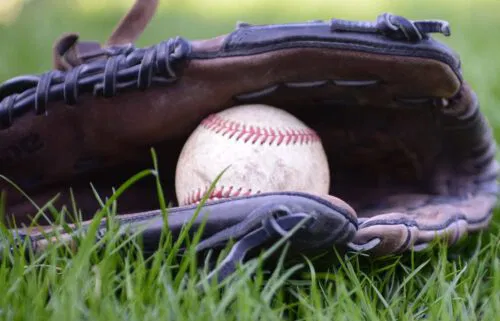What the viral Little League hug shows parents about teaching kindness and sportsmanship
By John Duffy, CNN
In the first inning of a Little League Southwest Region championship game in Waco, Texas, last week, pitcher Kaiden Shelton threw a ball high and fast, hitting 12-year-old batter Isaiah Jarvis in the head so hard it knocked his helmet off.
After he recovered briefly, Isaiah took first base. But he noticed that Kaiden was distraught on the mound, holding his head. Jarvis walked to the pitcher’s mound and hugged Kaiden, assuring him he himself was OK and that Kaiden was “doing great.”
In all likelihood, you’re familiar with the sweet video by now. It looked like it was a beautiful moment, a moment to pause and reflect on what we teach our kids about kindness and our boys about masculinity.
Parents are now wondering how they raise a child who would behave the way Isaiah did in that moment, with kindness and empathy instead of anger and rage. How do we raise kids of any gender who are willing to take that risk of offering affection, comfort and support in such a public forum?
Here are some ways for parents and caregivers to foster awareness, care, compassion, empathy and courage.
An opportunity for discussion
Our inclination might be to talk with our kids, to lecture them about the importance of kindness, empathy, emotional intelligence and other “soft skills.” Instead, we may watch the clip above and ask them questions like:
What do you think each player is feeling?
Why do you think this boy was compelled to comfort the pitcher?
What do you think the other boys were thinking and feeling?
What about the parents in the stands?
I’m in favor of this approach. It’s a great opportunity to get your child thinking about compassion, one of the qualities parents consistently say they want to foster in their children.
The power of modeling
Parents too often underestimate the power of their modeling on their children, yet it’s among the most powerful influences on the kind of people our kids become. It impacts their thinking, their behavior, their belief systems and the ways in which they treat others.
If you are a parent or caregiver, attend to the model you are providing to your kids. Are you patient, or do you tend to lose your temper regularly? Are you judgmental or accepting?
High school baseball coach Andrew Santella, author of “Soon: An Overdue History of Procrastination, from Leonardo and Darwin to You and Me,” encourages parents to attend to their own behavior while at their child’s sporting events or other extracurricular activities.
“Parental behavior at games is typically far more problematic than that of the kids,” he told me. “Too often, it’s parents that model poor sportsmanship while coaches are working to teach the opposite.”
“It’s also really important in those situations when your son or daughter does something sportsmanlike and showing high character, to give them credit for that like you would if they hit a home run.”
Encouraging boys to express feelings
On the field and off, we have a tendency to encourage girls to express their feelings far more openly than boys. A 2019 study in Modern Psychological Studies suggests that gender-role conforming boys showed a decreased tendency to openly express emotion compared with girls, but that boys experienced a higher level of stress as a result of emotional suppression.
The Little League hug can help to show our boys the power of expressing themselves emotionally, and it could even encourage them to be more expressive themselves, diminishing some of the stress they may experience. One boy I work with even expressed “mad respect” for the player showing his emotion. I’m confident he would not be reluctant to show that emotional side of himself when confronted with a similar situation in the future.
Ask yourself why our kids play sports
Participating in team sports provides kids unique life lessons. They learn to win, and lose, graciously. And they may also discover new sources of self-esteem and confidence.
Our kids also learn about the benefits of a healthy lifestyle. They learn the power of conditioning, technique, strategy, cooperation and discipline that will serve them in many areas of life, from work to relationships.
Sports and other extracurricular activities can also present leadership opportunities to kids, Santella told me. He sometimes has a player on his team who may not be the most skilled on the field, but with some encouragement can become a leader of team morale and discipline. “One way or another, sports provide an opportunity for kids to make their mark and prove themselves, to themselves. It’s a big deal in their development as a whole person.”
If your child isn’t the one bravely walking out to the mound and offering that hug, or clapping for the slowest swimmer in the pool, they are there for it. They witness it. They see that kindness and empathy beget kindness and empathy.
And most of the moments on a team are not so clear and dramatic as that hug broadcast on ESPN. Most moments consist of subtle nods of encouragement, a handshake in the dugout, or other fleeting little moments of humanity. It’s those moments that build character and provide kids with precious examples of how to show up for other people.
We can’t always teach those lessons in our homes or in school. But sports hold those opportunities in abundance.
They will be better people for it. And this is what parents tell me they want for their kids more than anything else. This is your best chance at raising a child with the courage, empathy and compassion that one Little League player showed.
The-CNN-Wire
™ & © 2022 Cable News Network, Inc., a Warner Bros. Discovery Company. All rights reserved.
Sign up for CNN’s Stress, But Less newsletter. Our six-part mindfulness guide will inform and inspire you to reduce stress while learning how to harness it.





